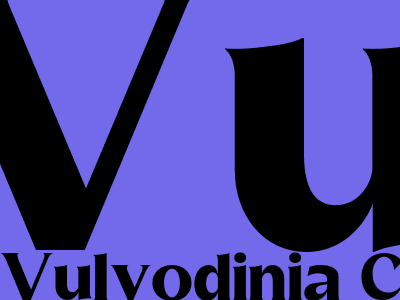Vulvodinia Cura: A Holistic Guide to Healing and Empowerment
Understanding Vulvodynia
What is Vulvodynia?
Vulvodynia is a chronic pain condition characterized by persistent discomfort, burning, or irritation in the vulvar region, which includes the tissues surrounding the external genitalia.
Symptoms
Common symptoms include: - Chronic pain, burning, or itching - Pain during intercourse, tampon use, or other physical contact - Swelling, redness, or discoloration of the vulva
Causes and Risk Factors
Causes
The exact cause is often unknown, but possible contributors include: - Nerve damage - Hormonal imbalance - Autoimmune disorders - Infections - Allergies - Previous childbirth or surgical procedures
Risk Factors
Certain factors can increase the likelihood of developing vulvodynia: - History of sexual abuse or trauma - Certain medical conditions, such as endometriosis, fibromyalgia, or irritable bowel syndrome - Family history of vulvodynia - Chronic stress or mood disorders
Diagnosis and Treatment
Diagnosis
Diagnosis involves a physical exam, patient history, and potential tests such as: - Biopsy - Vulvar cotton swab test - Q-tip test - Nerve block test
Treatment Options
Treatment plans are tailored to individual needs and may include: - Medications, such as pain relievers, anti-inflammatories, or antidepressants - Nerve blocks or injections - Physical therapy - Cognitive behavioral therapy - Biofeedback - Surgery (in severe cases)
Holistic Healing Approaches
Mind-Body Connection
Stress, anxiety, and depression can worsen vulvodynia symptoms. Practices like yoga, meditation, or deep breathing can provide stress relief and reduce pain perception.
Acupuncture and Traditional Chinese Medicine
Acupuncture and TCM aim to balance energy flow and reduce inflammation, which may alleviate vulvodynia symptoms.
Diet and Nutrition
Certain foods can trigger symptoms in some women. Identifying and avoiding these triggers can be beneficial.
Supplements and Herbs
Some supplements, such as curcumin, bromelain, and vitamin D, have anti-inflammatory properties that may help reduce pain.
Empowerment and Support
Support Groups and Online Communities
Connecting with others who have vulvodynia can provide support, understanding, and practical advice.
Education and Awareness
Increasing awareness about vulvodynia can help reduce stigma and promote accessible care.
Self-Care and Advocacy
Practicing self-care, such as warm baths, ice packs, and pelvic floor exercises, can provide relief and improve symptoms. Advocates for vulvodynia can raise awareness and demand better treatment options.
Conclusion
Vulvodynia is a complex condition, but with a holistic approach that addresses both physical and emotional aspects, individuals can manage symptoms and reclaim their quality of life.

Comments